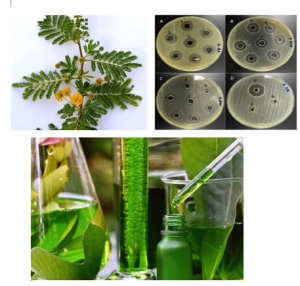
NATUAL DEFENSES: PLANT EXTRACTS-THE FUTURE OF MEDICINE AND WELLNESS
Plant extracts are extensively researched for their antimicrobial properties, as they offer a promising approach to addressing bacterial, fungal, and viral infections and considering the growing issue of antibiotic resistance. Numerous plants generate bioactive substances, including alkaloids, flavonoids, terpenoids, tannins, and phenolic acids, which can effectively inhibit microbial growth. Their efficacy can differ based on factors such as the method of extraction, concentration levels, and the specific microorganisms targeted. The significance of the antimicrobial properties of plant extracts is underscored by several factors, including the emergence of antibiotic-resistant pathogens, the increasing demand for natural alternatives, and their wide-ranging applications across various sectors.
Human Health Advantages: Alternative to antibiotics: Plant extracts can play a role in addressing antibiotic resistance. Treatment of infectious diseases: They can provide new antimicrobial agents to meet unmet medical needs. Natural and safe options: Plant-based antimicrobials may minimize adverse effects.
Environmental and Agricultural Importance: Sustainable agriculture: Plant extracts can serve as substitutes for chemical pesticides. Crop protection: Antimicrobial plant extracts can help prevent crop diseases. Eco-friendly solutions: They offer biodegradable and non-toxic alternatives.
Economic and Industrial Uses: Cosmetics and personal care: They can act as natural preservatives in products. Food preservation: Plant extracts can enhance shelf life. Pharmaceutical industry: They can lead to the discovery of new antimicrobial compounds.
Scientific and Research Progress: Discovery of novel compounds: Plant extracts may reveal unique antimicrobial agents. Understanding plant defense mechanisms: They provide insights into plant-microbe interactions. Development of new technologies: This includes extraction, purification, and formulation techniques.
Global Health Efforts: Addressing antimicrobial resistance (AMR): Plant extracts can be part of solutions to AMR challenges. Neglected tropical diseases: They can offer new antimicrobials for diseases impacting low-income communities. Pandemic preparedness: Natural antimicrobials can be vital for future outbreaks.
Interdisciplinary Collaborations: Collaborations among botany, microbiology, and pharmacology. Integration with traditional medicine practices. Cross-industry partnerships involving pharmaceuticals, agriculture, and cosmetics.
In summary, the antimicrobial properties of plant extracts play a vital role in combating resistant pathogens and fostering natural, sustainable solutions in diverse areas such as healthcare, food safety, agriculture, and cosmetics. Their extensive range of action and alignment with contemporary health and environmental practices render them invaluable for future developments in antimicrobial strategies.
